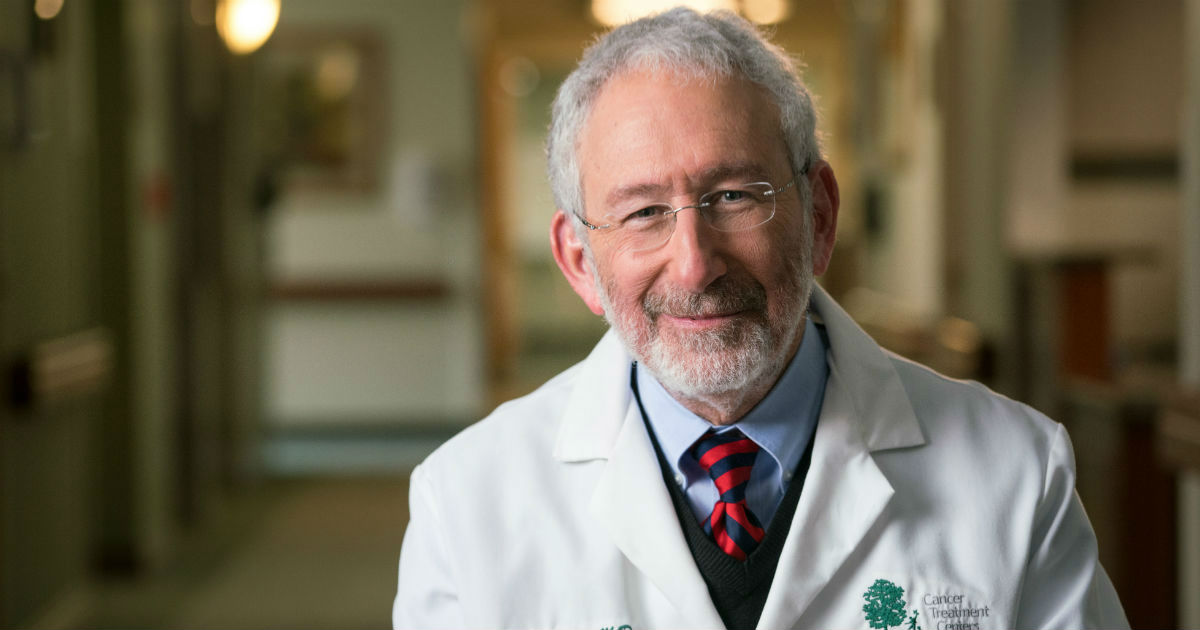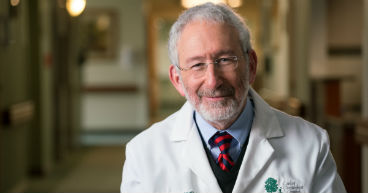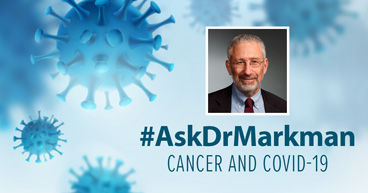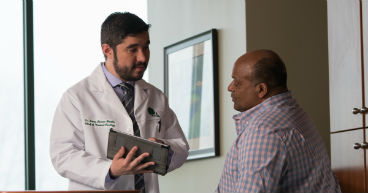
Jennifer T. was 36 years old when she was diagnosed with stage 2 breast cancer. The mother of two was young and active and had none of the common risk factors for the disease.
“The diagnosis was a shock,” she says. “After all, I was a healthy eater, athletic and had no family history of breast cancer. The hardest part for me was worrying about how my 11-year-old daughter would feel and how she would cope with the experience of her mother going through treatment.”
In recognition of Breast Cancer Awareness Month, Jennifer hosted Thursday’s special breast cancer edition of our regular Twitter chat with Maurie Markman, MD, President of Medicine & Science for Cancer Treatment Centers of America® (CTCA), posing the questions to him through the CTCA® Twitter account.
“It’s important to me that I share my experiences and questions about the disease and its treatment, so that other #CancerFighters can feel empowered about their care,” Jennifer says of her reasons for participating in the chat.
Here’s the chat:
Question: I was surprised to learn that there are so many different types of breast cancer. Why is it important to know the type and not just the location?
Answer: Yes, that’s a good point, Jennifer. Although there are two broad categories of breast cancer (invasive vs. noninvasive), there are actually dozens of subtypes, from Paget’s disease to triple-negative breast cancer to angiosarcomas. Many of these types behave differently, with different symptoms and different causes. More importantly, they are treated differently, so knowing which type you have is critical in determining a treatment plan.
Q: What is the most common form of breast cancer?
A: The most common is invasive ductal carcinoma, which accounts for 70 to 80 percent of all breast cancers. Because it’s so common, this cancer type has been heavily studied in clinical trials, so we have a number of treatment strategies available to attack it.
Q: I hear a lot about how genetic testing is changing the way cancer is treated. When should someone get genetic testing done?
A: Genetic testing, in terms of cancer risk, is not necessarily appropriate for everyone. It’s important to know that only about 5-10 percent of all cancers are related to inherited cancer mutations. That said, you should consider genetic testing if you have a first-degree relative (like a mom or sister) diagnosed with breast cancer, have many relatives with breast cancer, or have family members with a known BRCA mutation, among other reasons.
The American Cancer Society has a great resource on this. As to your question about timing, for an adult woman with any of the above risk factors, the earlier testing can be done, the better.
Q: What are the key considerations when determining whether to get a lumpectomy or mastectomy?
A: Considerations include the size of the cancer, its location and type, and how much breast tissue is involved in the tumor. But any decision regarding which surgical approach is appropriate needs to be made in consultation between the patient and her surgeon.
Q: As a young mother of two children when I was diagnosed, I remember speaking with my oncologist and care team about the goal of my treatment: to make sure I never had to go through this again. How does age play a role in treating breast cancer?
A: Age alone doesn’t have a major impact on the outcomes for breast cancer treatment, but it may play a role in which treatments the woman chooses to have. For example, older women are less likely to choose breast reconstruction after mastectomy. But age is only one of many considerations for determining a breast cancer treatment regimen. Others include the type of cancer, its size, its stage, its location, whether it has specific well-defined biological factors and (of course) patient choice.
Q: When should a breast cancer patient consider enrolling in a clinical trial?
A: Clinical trials are offered at multiple points in the breast cancer journey, including the initial stages of treatment and after the patient has already undergone several therapies. So, there’s no single time that’s better than others, generally speaking. That’s why it’s important for each patient to make the decision, in consultation with her oncologist, on when—and whether—a clinical trial may be appropriate for her.
Q: It seems like so many advancements have been made since I was diagnosed in 2014. At what point should a breast cancer survivor reassess her care plan with her team to determine whether the treatment regimen should change?
A: Patients should always feel comfortable discussing possible modifications in a treatment plan, especially if they have difficult treatment-related symptoms or even if they hear something in the news that they believe might be relevant to their own care.
Q: Tamoxifen is one of the most talked-about aspects of survivorship for many breast cancer patients. What does recent research say about the drug’s efficacy, side effects and how long a patient should be on it?
A: There is very solid evidence supporting the prolonged administration of hormonal approaches (including tamoxifen) for up to 10 years after primary surgery and adjuvant treatments have been completed. The drug does come with side effects, which include hot flashes, vaginal dryness, sleep problems, weight gain, and depression, irritability and mood swings.
Q: Friends of mine always ask me what integrative care is. Can you describe what it is and the role it plays for breast cancer patients?
A: Integrative care is a therapeutic approach that focuses on a patient’s specific needs during her/his cancer journey, including symptom management and emotional well-being. The idea is to treat the whole patient, not just the disease. For a breast cancer patient, for example, it may include physical therapy to help her regain mobility in her arms after a lumpectomy or mastectomy, or it may include pain management, or nutritional support to manage chemotherapy-induced nausea.
Q: One of the most important pieces of advice I share with other cancer fighters, is that it’s okay to get a second opinion if you’re not satisfied at first. Is it ever too late to get a second opinion?
A: A second opinion is always appropriate if patients have questions regarding their care. And no, it is never too late to get a second opinion. Here is a great resource for understanding the benefits of a second opinion.
Get answers to common questions about breast cancer treatment.



